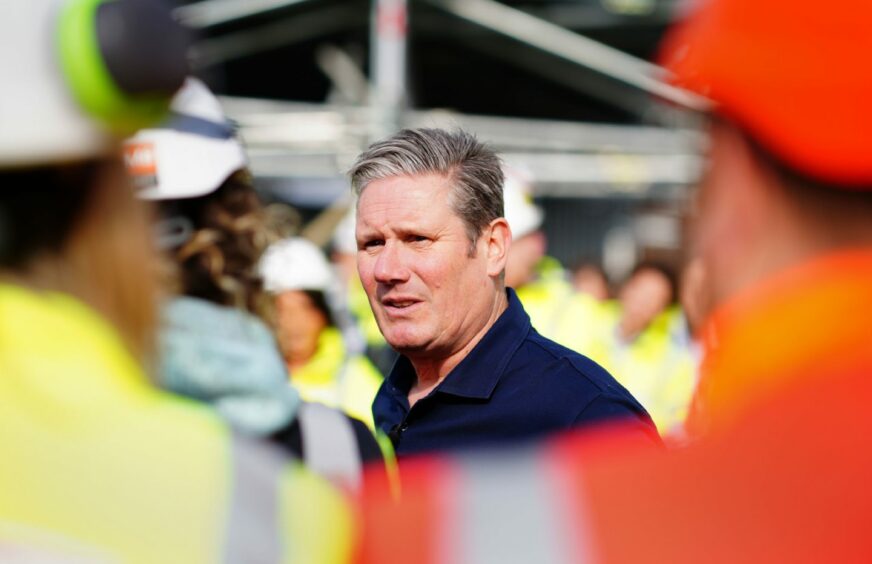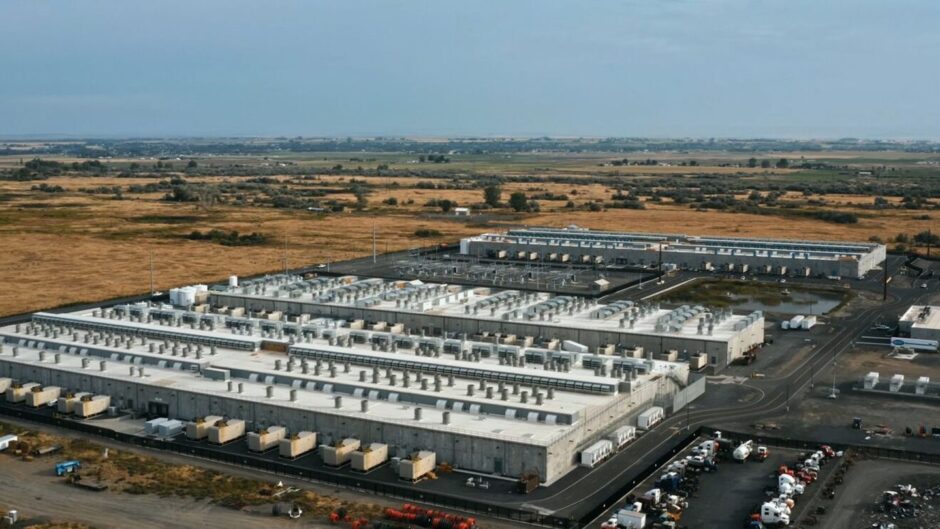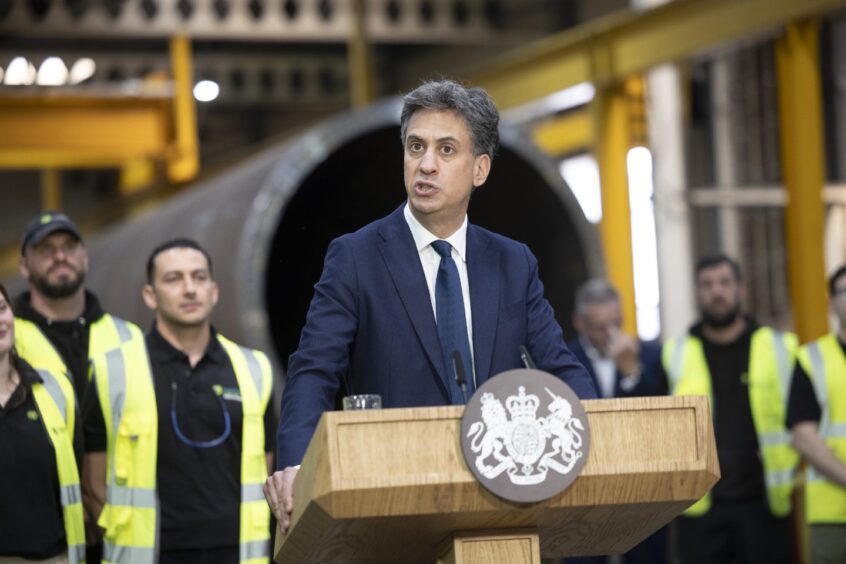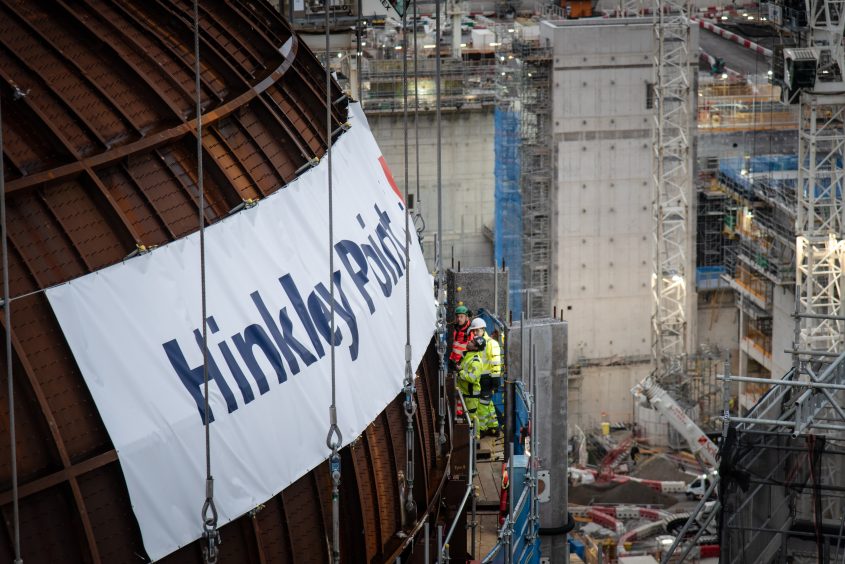Prime minister Keir Starmer is placing his bets on small nuclear reactors to meet the country’s energy needs after a public backlash over big expensive nuclear projects.
The UK government has said this week it will reform planning rules for nuclear power to “clear a path” for the construction of new small modular reactors.
“This country hasn’t built a nuclear power station in decades,” said Starmer. “We’ve been let down, and left behind. Our energy security has been hostage to Putin for too long, with British prices skyrocketing at his whims. I’m putting an end to it.”
In a statement, the prime minister’s office described the nuclear industry, first pioneered in Britain, as having been “suffocated by regulations”, which it said had led to a collapse of investment, with Hinkley Point C being the only project still in development.
Energy secretary Ed Miliband said: “The British people have been left vulnerable to global energy markets for too long — and the only way out is to build our way to a new era of clean electricity.”
Starmer is hoping that smaller reactors will be less expensive than pressurised nuclear reactors and can be rolled out more easily, as the government embarks on a crack-down of public intervention into major infrastructure projects after lawsuits stalled projects like Rosebank and Sizewell C.
He said on Thursday that he will slash red tape in order to get Britain building under his “plan for change”.
Number 10 Downing Street said that more nuclear power plants will be approved in England and Wales as a result of the planning reforms.
The prime minister also intends to transform the legal system to prevent appeals against major infrastructure projects, vowing last month to put an end to “challenge culture”.
Government will introduce the latest reforms, including clearing a path for small modular reactors to be built in the UK for the first time, in a move that is expected to create thousands of new jobs.
“This is the latest refusal to accept the status quo, with the government ripping up archaic rules and saying no to the NIMBYs, to prioritise growth,” the office for the PM said in a statement.
“It comes after recent changes to planning laws, the scrapping of the 3-strike rule for judicial reviews on infrastructure projects, and application of common-sense to environmental rules.”
The last nuclear power station to be built in the UK opened in 1995. China, by contrast, is building 29 nuclear reactors, and the European Union has 12 reactors in the planning stage.
“Investors want to get on and build reliable, cheap nuclear power, which will in turn support critical modern infrastructure, such as supercomputers to power the UK’s ambitions – but they have been held back,” Starmer said.
The changes will allow mini nuclear power stations to be included in planning rules for the first time. Starmer also intends to lock in existing nuclear planning rules through scrapping the expiry date of that legislation and said he will set up a new Nuclear Regulatory Taskforce to attract companies to the UK.
The government will also ditch a list of eight approved sites for new nuclear power development in the UK, which means nuclear sites could be built anywhere across England and Wales.
Starmer hopes these changes will enable small and advanced modular nuclear reactors to be co-located alongside industrial sites and AI data centres.
Expensive
According to the government, the UK remains one of the world’s most expensive countries to build nuclear power, and Number 10 claims that small modular reactors are “cheaper, safer and quicker to build” .
Small nuclear reactors are posed as being potentially more nimble than larger counterparts such as Hinkley Point C in Somerset, which secured a government subsidy more than a decade ago but has still not yet been completed.
Project costs at Hinkley Point C, the UK’s only nuclear power station underway, have escalated to exceed £40 billion, more than double the National Audit Office’s original estimation of £18bn.
Energy Secretary Ed Miliband said in a speech in December that modular reactors could fuel a “fourth industrial revolution”, with interest “supercharged by the rise of AI”.
Last year state-owned Great British Nuclear (GBN), which was established in 2023 to support the delivery of new nuclear power in the UK, started negotiations with four shortlisted companies seeking to deliver SMR designs that could be operational by the mid-2030s.
GBN said any of the designs submitted by Rolls-Royce SMR, Holtec, GE Hitachi and Westinghouse “would be fit to use in the UK nuclear programme”.
However, there are several downsides to the technology.
The market remains largely unproven. In 2020, the UK’s only small modular reactor business Rolls-Royce SMR unveiled plans to build up to 16 mini-nuclear plants as part of a consortium, but the first of these reactors is not expected to be finished until 2030.
Rolls-Royce’s small modular reactor safety and regulatory affairs director Helena Perry said in July that the company was submitting “the UK’s most advanced SMR design”.
According to some scientific studies, small modular nuclear reactors create more non-disposable radioactive waste than larger projects. However, the science is unclear, with another study from 2024 concluding that there are “no major challenges” to managing small modular nuclear waste.
The UK is not expected to have a solution ready for burying nuclear waste until at least 2050, by the time the country seeks to reach net zero.
Slow
The latest move from Starmer follows public outcry over the pace of development, escalating costs and large public investment in projects such as Hinkley Point C in Somerset and Sizewell C in Suffolk.
Both projects are being developed by French state-owned energy company EDF, which received a dressing down from state auditor Cour des Comptes last month over the escalating expense of Hinkley Point C and its replica Sizewell C.
EDF’s chief executive Luc Rémont disclosed to the regulator that the company is in the process of refinancing the first of those projects after the withdrawal of a Chinese investor.
Simone Rossi, CEO of EDF in the UK, said the opportunity to build a low-carbon energy system supported by nuclear “will only be fully realised with the necessary reforms to planning and regulation”.
The French company plans to use twin nuclear power reactors at Sizewell C, which it claims will be more efficient than previous iterations.
Campaigners have raised concerns over the escalating costs of Sizewell C, a replica of Hinkley Point C that has been called a “Boris Johnson vanity project”. The project has faced two unsuccessful legal challenges from campaign groups.
Treasury chief secretary Darren Jones has told Parliament that he will undertake a review of every pound of public expenditure over Sizewell C.
Starmer’s office indicated that the government remains committed to driving forward new nuclear including further funding for the project.
Recommended for you



 © Ben Birchall/PA Wire
© Ben Birchall/PA Wire © Supplied by Amazon
© Supplied by Amazon © James Glossop/The Times/PA Wire
© James Glossop/The Times/PA Wire







